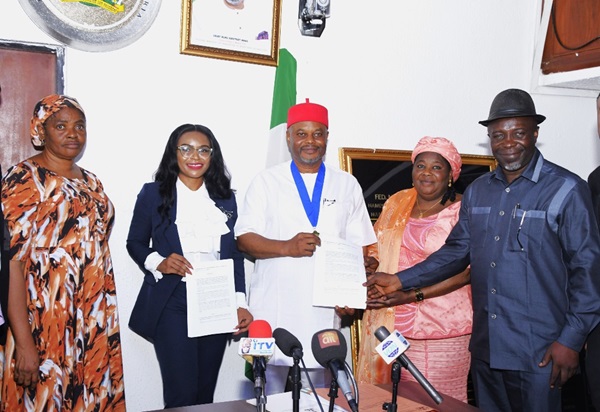Place your adverts here on InfoDig @ low rates; banner ads, sponsored links and guest articles etc. Contact us
A lawyer and former member of the House of Representatives, Kayode Oladele, has faulted the position of the former President of the Nigerian Bar Association, Dr Olisa Agbakoba (SAN), on the legal status of the Economic and Financial Crimes Commission.
He described Agbakoba’s stand as “legal sophistry.”
Oladele’s response was a rejoinder to an interview granted by Agbakoba during which he said the EFCC lacked the powers to interfere in state affairs.
The SAN also reiterated this stand in a letter written to the Joint National Assembly Constitution Review Committee.
Agbakoba had written to both chambers of the National Assembly, pointing out that the EFCC was “unconstitutionally established.”
He highlighted the difficulties occasioned by constitutional hurdles in the fight against corruption.
In two separate letters to the Senate and House of Representatives, dated October 14, 2024, Agbakoba stated, “I very strongly believe the EFCC is unconstitutionally established. The powers under which it was established go beyond the powers of the National Assembly. The EFCC is an unlawful organisation.”
Agbakoba’s call came amidst a move by about 16 states of the federation to delegitimise the EFCC.
The Supreme Court will, on October 22, rule on the suit brought before it by 16 states, seeking to declare EFCC has no right to check the accounts of the state government.
Agbakoba stated that he was delighted to note that many states had finally taken it upon themselves to challenge the constitutionality of the EFCC, saying, “This will put to rest the question relating to the validity of the EFCC.”
Oladele, however, maintained that: “It is pertinent to state that the EFCC is a Nigerian law enforcement agency established to investigate and prosecute economic and financial crimes, such as advance fee fraud, money laundering and misapplication and misappropriation of public funds.
“With due respect, Mr Agbakoba’s position is more of legal sophistry rather than legal substance. His position does not represent the correct position of the law as it runs contrary to the long-settled position of the law as handed down by the superior courts of law including the apex court in Nigeria.
“It is settled law that Nigeria operates a co-operative federalism as opposed to dualist federalism and under co-operative federalism as practised in Nigeria, some agencies are common agencies for both the federal and state governments,” he said.
Oladele posited further that the view expressed by Agbakoba did not have any legal backing “and, therefore, unsupportable in law and practice.”
He went further to state that, “Indeed, the EFCC is a common agency for both the federal and state economic and financial crimes, and as such, it qualifies as ‘any other authority’ to institute criminal proceedings under section 174(1)(b) and section 211(1)(b) of the 1999 Constitution of the Federal Republic of Nigeria (as amended).
“Again, these statutory provisions have been given judicial considerations by the Supreme Court and the Court of Appeal, in line with my position and contrary to Agbakoba’s views or submissions on this issue.
“The EFCC is expressly conferred with powers under sections 6(m), 9(2) and 13(2) of the EFCC (Est.) Act to initiate criminal proceedings in any court in Nigeria for any offence bordering on economic and financial crimes, even under the Penal Code. The EFCC cannot, therefore, be faulted for initiating the instant charge in the name of ‘The Federal Republic of Nigeria.’ This is because the Federal Government of Nigeria is not synonymous with the Federation of Nigeria, or the Federal Republic of Nigeria.














 English (US) ·
English (US) ·